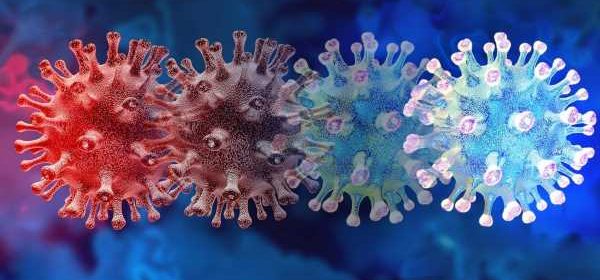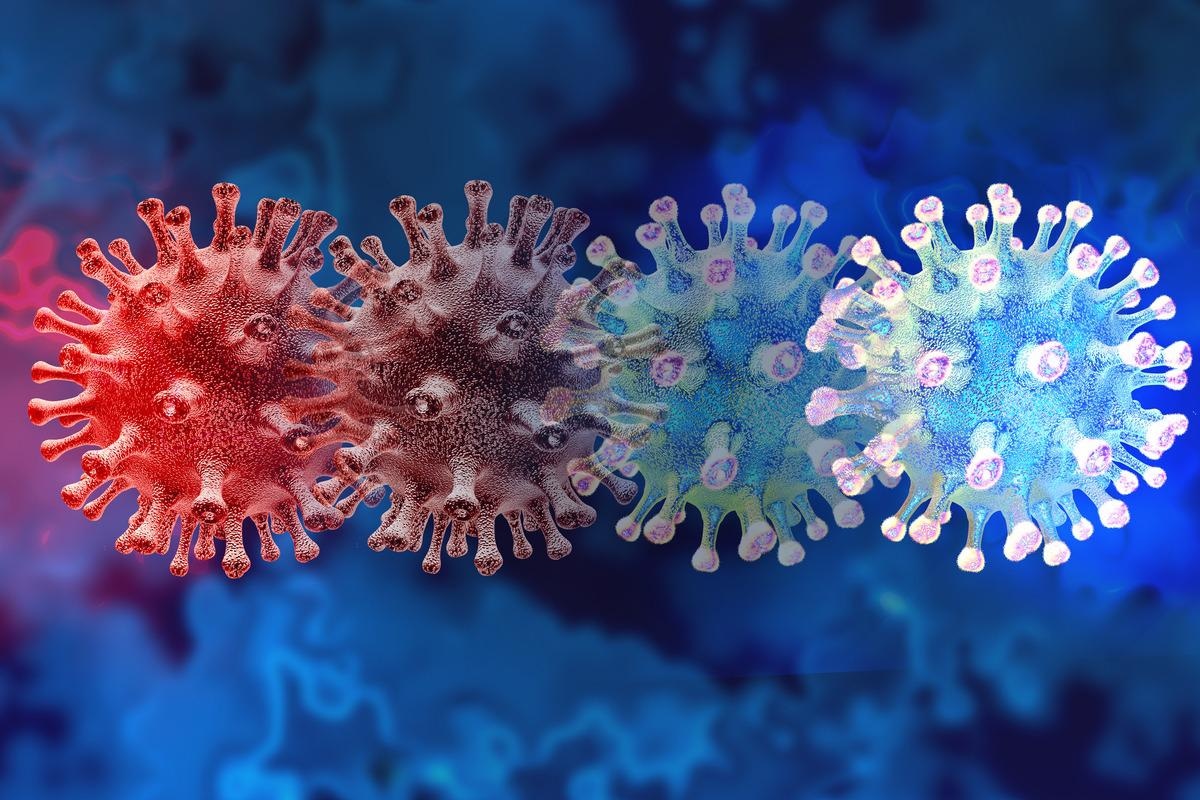Assessing the transmissibility of SARS-CoV-2 variants of concern

A recent study posted to the Research Square* preprint server and currently under consideration at Virology Journal investigated and compared the transmissibility of severe acute respiratory syndrome coronavirus-2 (SARS-CoV-2) variants of concern.

SARS-CoV-2, the etiologic agent of the coronavirus disease 2019 (COVID-19), has infected over 423 million people worldwide. Since the COVID-19 pandemic began, the ancestral or wildtype SARS-CoV-2 has acquired different mutations evolving and emerging as novel variants. The World Health Organization (WHO) has classified them as variants of concern (VOC), variants of interest (VoI), and variants under monitoring (VuM). So far, five VOCs have been detected, namely the Alpha, Beta, Gamma, Delta, and Omicron variants. These mutant viruses present newer characteristics besides enhancing their pathogenicity and infectivity.
The study
In the current study, researchers assessed the transmissibility of VOCs, computing the basic reproduction number (R0), time-varying or effective reproduction number (R), and the growth rate. R0 is a metric representing the number of secondary infections caused by one infected case in a susceptible population and estimated typically at the beginning of any infectious outbreak. R denotes the average number of secondary cases by an infective subject at any specific time throughout the infectiousness period.
Data on SARS-CoV-2 sequences were retrieved from publicly available repositories like the global initiative on sharing avian influenza data (GISAID) and CoVariants (covariants.org) databases. Filtering raw data removed non-VOC sequences and the final dataset contained sequences from 10 countries reporting the highest number of sequences for each VOC. Epidemic curves were obtained VOC-wise by employing local regression models. R0 for each of the five VOCs was calculated as R0 = 1/[M(-r)] with r being growth rate and M, the moment generating function of the infection.
Results
The authors noted that the highest R0 value was for the Omicron variant with a growth rate of 0.195 in South Africa. VOC-wise analysis revealed that the highest R0 values for the Alpha, Beta, Gamma, and Delta VOCs were 1.22, 1.19, 1.21, and 1.38 reported from Japan, Belgium, the United States (US), and France, respectively. The growth rate for the Alpha and Gamma variants was 0.06; 0.05 and 0.09 for the Beta and Delta variants.
The average growth rate was highest for the Omicron VOC (0.13), followed by Delta (0.046), Alpha (0.038), Gamma (0.03), and Beta (0.027) VOCs. Likewise, the mean R0 values followed the same pattern with the Omicron variant estimated to have a mean R0 of 1.559. The mean R0 values for other variants were found to be 1.17 (Delta), 1.14 (Alpha), 1.11 (Gamma), and 1.1 (Beta).
Conclusions
The study findings showed that the SARS-CoV-2 Omicron VOC exhibits the highest transmissibility among all SARS-CoV-2 VOCs. The highest R0 values in nine countries were due to the Omicron variant, and the only exception was France, with Delta VOC being the most transmissible (R0 = 1.38). Consistent with other studies, the data presented in the study supports that the Omicron variant is the most transmissible variant of SARS-CoV-2 known to date. Notably, the study analyzed only a small proportion of infections based on the availability of genomic sequences and hence might not be representative of the real-time metrics.
*Important notice
Research Square publishes preliminary scientific reports that are not peer-reviewed and, therefore, should not be regarded as conclusive, guide clinical practice/health-related behavior, or treated as established information.
- S.S Manathunga, I. A Abeyagunawardena, S.D Dharmaratne et al. (2022). A comparison of transmissibility of SARS-CoV-2 Variants of Concern. Research Square. doi: https://doi.org/10.21203/rs.3.rs-1356628/v1 https://www.researchsquare.com/article/rs-1356628/v1
Posted in: Medical Research News | Medical Condition News | Disease/Infection News
Tags: Avian Influenza, Coronavirus, Coronavirus Disease COVID-19, covid-19, Genomic, Influenza, Omicron, Pandemic, Reproduction, Research, Respiratory, SARS, SARS-CoV-2, Severe Acute Respiratory, Severe Acute Respiratory Syndrome, Syndrome

Written by
Tarun Sai Lomte
Tarun is a writer based in Hyderabad, India. He has a Master’s degree in Biotechnology from the University of Hyderabad and is enthusiastic about scientific research. He enjoys reading research papers and literature reviews and is passionate about writing.
Source: Read Full Article